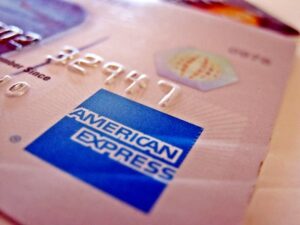According to a recent assessment by the Federal Reserve Bank of St. Louis, more than one-third of American households wrestle with persistent credit card debt. Most (54%) of survey respondents said that inflation was the primary reason for their carryover credit card balances. Others identified emergencies, job losses, and medical bills as major contributors to their revolving debts.
Fed researchers found that lower-earning households, the elderly, and families with minor children were most likely to have unpaid balances on their credit cards. Along with rising balances, the Fed data also shows that the number of credit card delinquencies and defaults are also rising.
In the poorest 10% of ZIP codes the Fed surveyed, credit card defaults rose from 14.9% in Q3 2022 to 21% in Q1 2024, or 41%. It’s not much of a stretch to conclude that lower-earning households will have difficulty managing unplanned expenses, or may need to use a line of credit to pay some of their bills.
But those respondents in the poorest 10% of ZIP codes in the study didn’t accumulate as much new debt as some other groups in the study. In fact, respondents in the richest 10% of ZIP codes in their study logged the highest increase among credit card delinquencies. While the percentage of households in this group that were in arrears on their credit cards was smaller, the increase in delinquencies during the study period was 54%.
Using data from a Clever Real Estate survey, about half of Americans believe they can pay off their credit card debt within a year. 28% believe they can pay their revolving debt within five years. 11% of respondents think they’ll need a decade to eliminate their credit balances, and 6% believe they will never pay off what they owe.
Higher wages could minimize the impact of credit card debt
The same survey found that nearly half of Americans use their credit cards to pay essential monthly expenses. This indicates that a large proportion of American households earn significantly less than they spend each month. This isn’t attributable to “profligate spending.”
To be sure, some people are better at managing their money than others, but the data here track with other data (like ALICE data from the United Way) that suggest that 4 out of 10 households nationally are classified as the working poor.
Escaping debt – whether it’s credit cards, student loans, auto loans, mortgages, personal loans or other repayment obligations –is critical to establishing and maintaining a household. The inability to repay what’s supposed to be short-term debt speaks to the earning potential of those debtors. It also underscores the importance of being able to acquire education, certifications, and other recognized credentials that increase the earner’s income potential. The only way to escape debt is to earn enough to pay both regular monthly expenses and debt service. And debt service payments need to be meaningful enough to overcome high interest rates that go along with being in debt.
The growing number of households that are in debt and have no way to escape it explains why it’s important for places like Washtenaw Community College to focus on creating programs that deliver high-wage, high demand jobs. Increasing the earning potential of a degree program will do more for Washtenaw County’s ALICE households than just about anything else.
Photo Credit: Mike Bitzenhofer, via Flickr



















